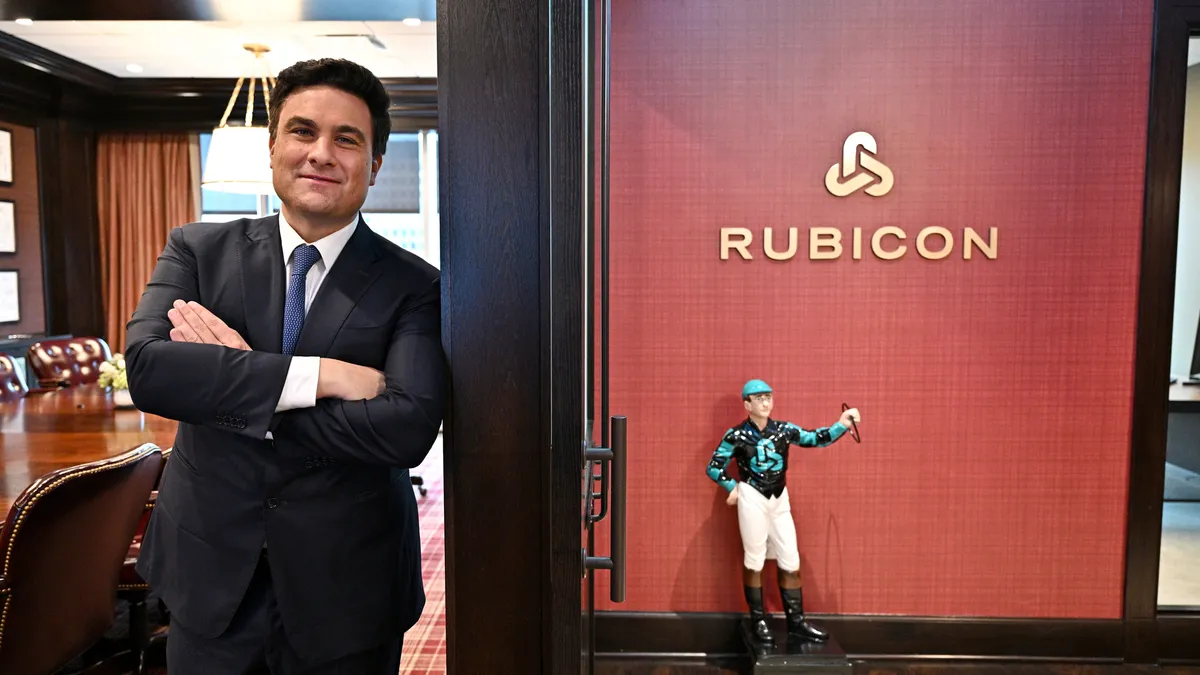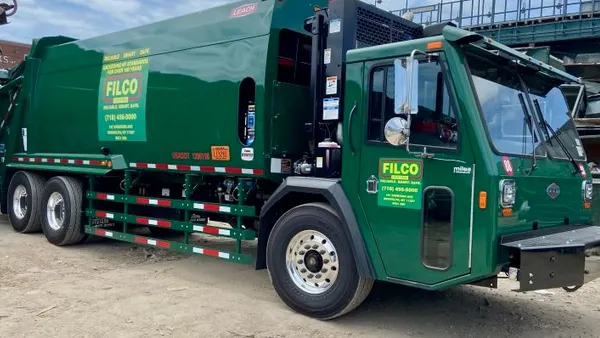Dive Brief:
- Rubicon Technologies is expected to soon go public, following favorable results in a Tuesday vote by shareholders of Founder SPAC to merge with the company. After this move, Rubicon will start trading on the New York Stock Exchange under the symbol RBT with an enterprise value of $1.7 billion.
- The company expects to see $736 million in revenue for 2022, the bulk of which it says is under contract, with a net loss of $66.4 million. First-quarter revenue was $159.8 million with a net loss of $24.8 million.
- Under the special purpose acquisition company deal, Rubicon shareholders will roll over all existing equity and end up owning 75% of the new entity. The transaction is anticipated to yield up to $321 million in cash and a $111 million private investment in public equity, or PIPE, to fund further growth.
Dive Insight:
Kentucky-based Rubicon expects to soon be publicly listed alongside many of the large waste companies it has sought to compete with for more than a decade — while also directing material to some of those companies’ post-collection assets. The transaction, first announced last December, initially had been projected to close during the second quarter, but volatility in financial markets has complicated such deals in recent months.
The third-party service provider facilitates waste and recycling collection for more than 8 million locations via a network of more than 8,000 independent haulers. It says it offers a different approach than the traditional waste broker model through its range of digital capabilities.
“We can have a better product experience, and we can help energize and act as jet fuel for these independent haulers that are trying to compete on Main Street against some of the biggest pocketbooks in the industry,” said CEO Nate Morris in a recent interview on the Absolute Return podcast. “I think we’re running a play that’s very similar [to what] we’ve seen in the hotel space with Airbnb, in the cab space with Uber.”
According to past filings, Rubicon’s revenue model is focused on brokering waste services through its marketplace product, selling recyclable commodities and charging software subscription fees to local government customers that use its technology. Large multi-location clients (including many national names such as Starbucks and Walmart) are an estimated 90% of the company’s marketplace business, according to comments from Senior Vice President of Finance Chris Spooner during an April investor presentation.
For 2021, Rubicon reported revenue of $583 million with a net loss of $73.2 million. The company's prospectus indicates it has “experienced net losses in each year since inception” during a time of aggressive growth. Rubicon anticipates it could surpass $1 billion in revenue for 2023 and beyond, with executives during the presentation citing a growing share of recurring revenue as a key factor.
"Often we've been referred to as Uber or Airbnb for trash. But the salient difference is that our business is backed up by long-term contracts, typically in the three-plus-year range," said Chief Technology Officer Phil Rodoni at the time.
Once it goes public, the company intends to use proceeds from the deal for organic growth, including efforts to capture more business from existing customers, offer new products and services and continue expanding internationally. Executives have pointed to double-digit revenue synergies from past broker acquisitions as another sign of what they can do with the proceeds. Earlier this year, Rubicon also acquired Germany-based routing and software company CIVIX. In April, Morris said the company had identified $10 billion in market share handled by “antiquated” brokers in the U.S. that could be potential targets.
“We can make lots of purchases in this swath of $10 billion to bring on more volume, contracts, historical data, and the ability to grow very, very quickly and seamlessly integrate what is, in essence, an asset purchase of buying these contracts and bringing them onto our platform in a very cost-effective rate,” he said.
At the time, Founder SPAC CEO Osman Ahmed said his group evaluated more than 250 companies for a potential partnership before ultimately selecting Rubicon. Filings show initial discussions about a deal began last October.
Editor’s note: This piece has been updated to reflect the results of the Founder SPAC shareholder vote.










